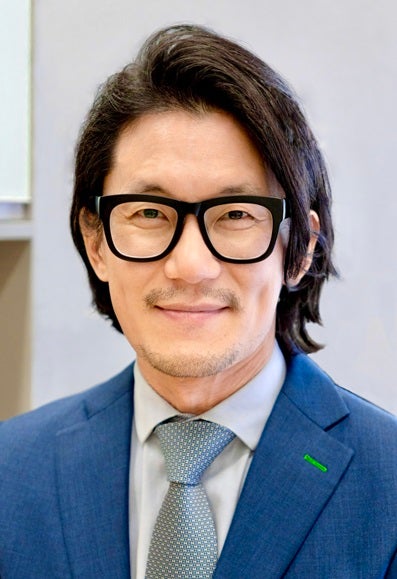
Affiliations
Executive Director, National Centre for Engineering Biology, Singapore (NCEB)
Director, Singapore Consortium for Synthetic Biology (SINERGY)
Director, NUS Synthetic Biology for Clinical and Technological Innovation (SynCTI)
Director, Synthetic Biology Translational Research Program, Yong Loo Lin School of Medicine
Director, Wilmar and NUS Corporate Laboratory (WIL@NUS)
Biodata
Matthew Chang is the Executive Director of the National Centre for Engineering Biology, Singapore. He concurrently serves as the Director of the Singapore Consortium for Synthetic Biology, the Wilmar-NUS Corporate Laboratory, and the NUS Synthetic Biology for Clinical and Technological Innovation. He holds the Provost’s Chair and is a Professor of Biochemistry at the Yong Loo Lin School of Medicine, National University of Singapore. Dr. Chang has made significant contributions to synthetic biology, authoring over 130 scholarly publications. His scientific achievements have been recognized with many accolades, including the National Research Foundation of Singapore’s Investigatorship Award, the NUHS-Mochtar Riady Pinnacle Research Excellence Award, the Presidential Award from the Korean Federation of Science and Technology Societies, and the U.S. Environmental Protection Agency’s Scientific and Technological Achievement Award.
Beyond his research, Dr. Chang is a committed educator and advocate for synthetic biology. He has mentored over 100 students and researchers, many of whom now hold leadership positions in academia, government, and industry. He has delivered over 200 invited presentations at key scientific forums worldwide and serves in editorial roles for more than 15 leading scientific journals. He has held advisory roles in significant international research initiatives, including Australia’s CSIRO Synthetic Biology Future Science Platform, SynBio Africa, and the European Union’s Horizon 2020 programme. Dr. Chang co-founded the Global Biofoundry Alliance and the Asian Synthetic Biology Association and currently serves as Co-Chair of the World Economic Forum’s Global Future Council on Synthetic Biology. More information is available at https://synbiolab.org and https://syncti.org.
Research Interest
Synthetic Biology, Metabolic Engineering, Microbiome Engineering, Synthetic Genomics
Selected Publications
- Shen H, Aggarwal N, Cui B, Foo GW, He Y, Srivastava SK, Li S, Seah MZX, Wun KS, Ling H, Hwang IY, Ho CL, Lee YS, Chang MW (2025) Engineered Commensals for Targeted Nose-to-Brain Drug Delivery. Cell. In press.
- YC Heng, Kitano S, Susanto AC, Foo FL, and Chang MW (2024) Tunable cell differentiation via reprogrammed mating-type switching. Nature Communications. 15:8163.
- Shen H, Zhang C, Li S, Liang Y, Lee LT, Aggarwal N, Wun KS, Liu J, Nadarajan SP, Weng C, Ling H, Tay JK, Wang DY, Yao SQ, Hwang IY, Lee YS, Chang MW (2024) Prodrug-conjugated tumor-seeking commensals for targeted cancer therapy. Nature Communications. 15:4343.
- Foo JL, Kitano S, Susanto AV, Jin Z, Lin Y, Luo Z, Huang L, Liang Z, Mitchell LA, Yang K, Wong A, Cai Y, Jitong Cai J, Stracquadanio G, Bader JS, Boeke JD, Dai J, Chang MW (2023) Establishing Chromosomal Design-Build-Test-Learn through a Synthetic Chromosome and its Combinatorial Reconfiguration. Cell Genomics. 3:100435.
- Koh E, Hwang IY, Lee HL, De Sotto R, Lee JWJ, Lee YS, March JC, Chang MW (2022) Engineering probiotics to inhibit Clostridioides difficile infection by dynamic regulation of intestinal metabolism. Nature Communications. 13:3834.

